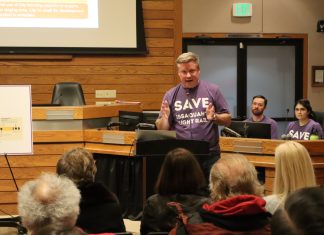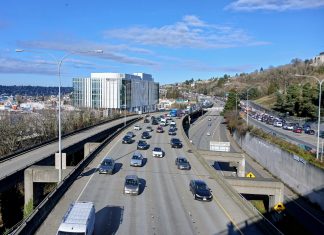Staff Biography
Ryan Packer
Ryan Packer has been writing for The Urbanist since 2015, and currently reports full-time as Contributing Editor. Their beats are transportation, land use, public space, traffic safety, and obscure community meetings. Packer has also reported for other regional outlets including BikePortland, Seattle Met, and PubliCola. They live in the Capitol Hill neighborhood of Seattle.Recent Articles
‘Existential’ Budget Cut Would Wipe Out State Urban Forestry Program
The proposed state House operating budget would zero out the Washington State Urban and Community Forestry program, which cities across the state rely on to leverage federal dollars for trees. The effects of those cuts could be wide-reaching.
Legislation Targeting Ground-Floor Storefronts Gets Overhauled in House
After concerns were raised by city officials around removing flexibility to create vibrant and walkable neighborhoods, the version approved by the House local government committee sets a 40% cap on mixed-use zones where ground-floor retail spaces can be required.
Eastsiders Pack ‘Save Issaquah Light Rail’ Rally
The crowded community meeting was the first step in an advocacy campaign intended to persuade members of the Sound Transit board about the value of continuing light rail expansion on the Eastside. Issaquah city leaders are bringing ideas to the table they say could cut costs.
Tukwila Becomes Latest Puget Sound City to Impede ICE Expansion
The unanimous vote follows a similar moratorium in SeaTac, with Burien, Renton, and Seattle expected to follow suit. As an epicenter of ICE activity in Puget Sound, Tukwila had unique reason to believe a detention center could be coming to their city.
State Senate Signs Onto Billions of New Debt for Highway Upkeep
The $2 billion in new bonding in the Senate's transportation budget would help bolster the state's highway and bridge maintenance spending, which has lagged due to longstanding prioritization of new highway projects. But the debt load could create problems for future budget writers.






